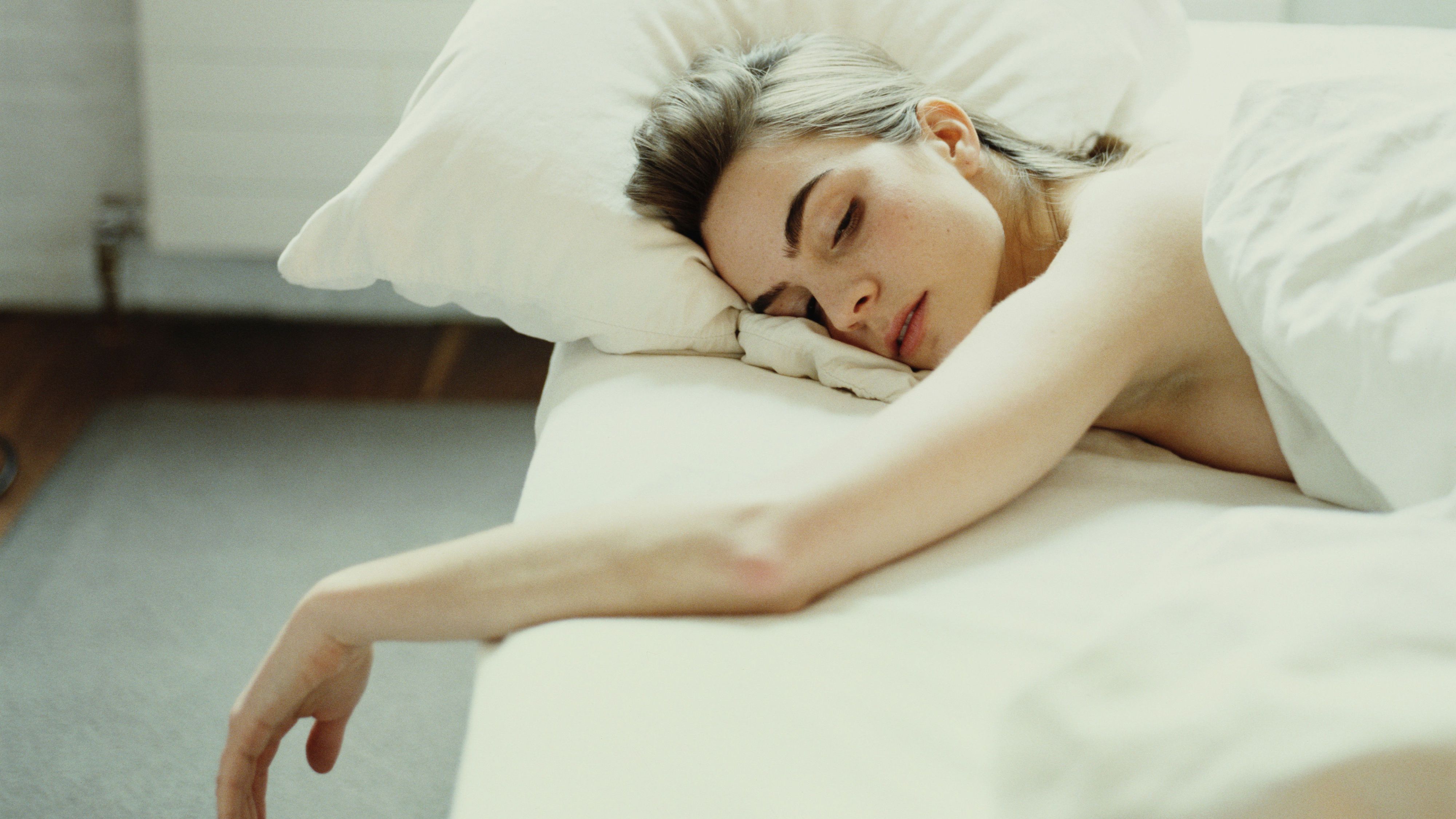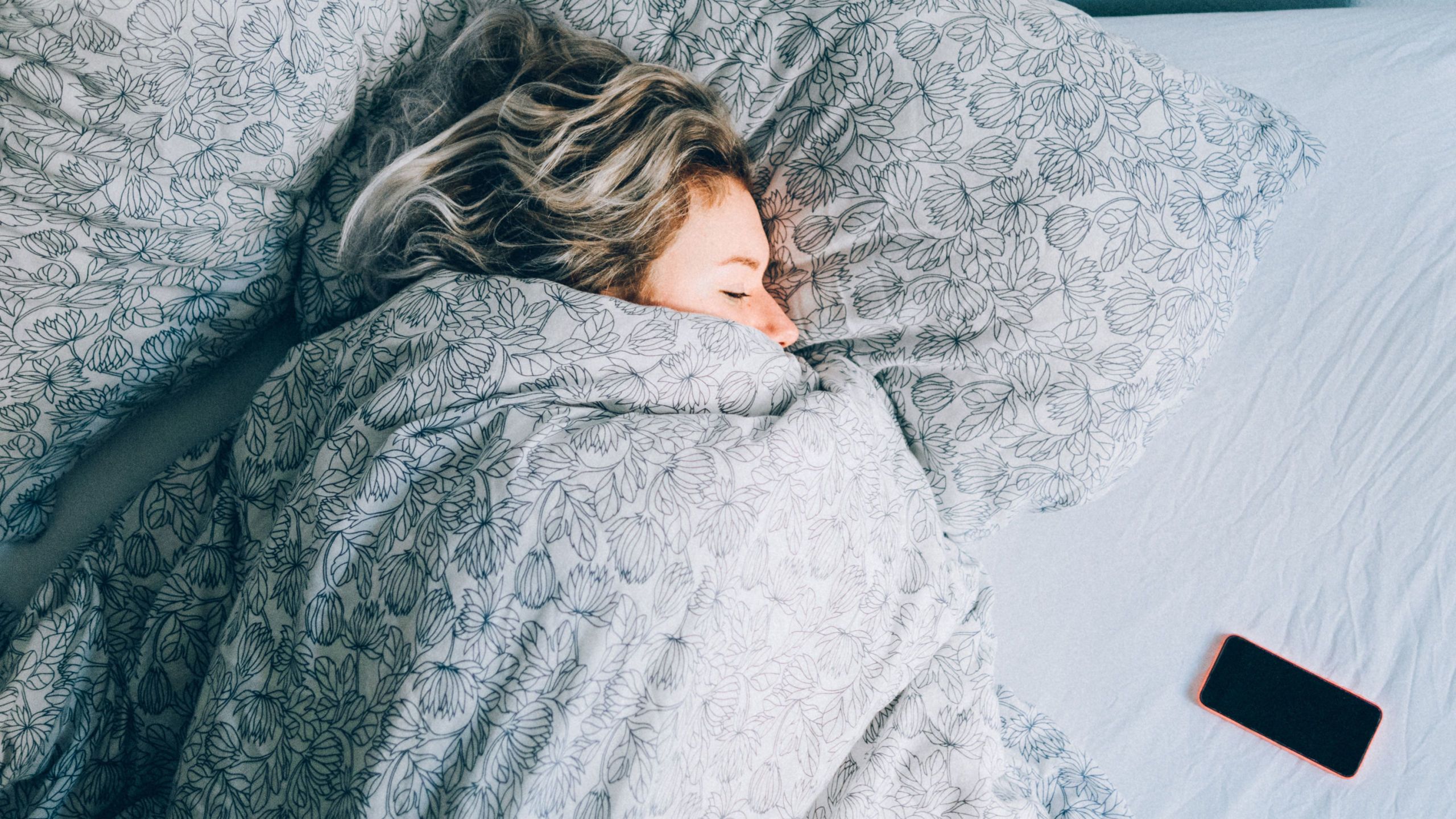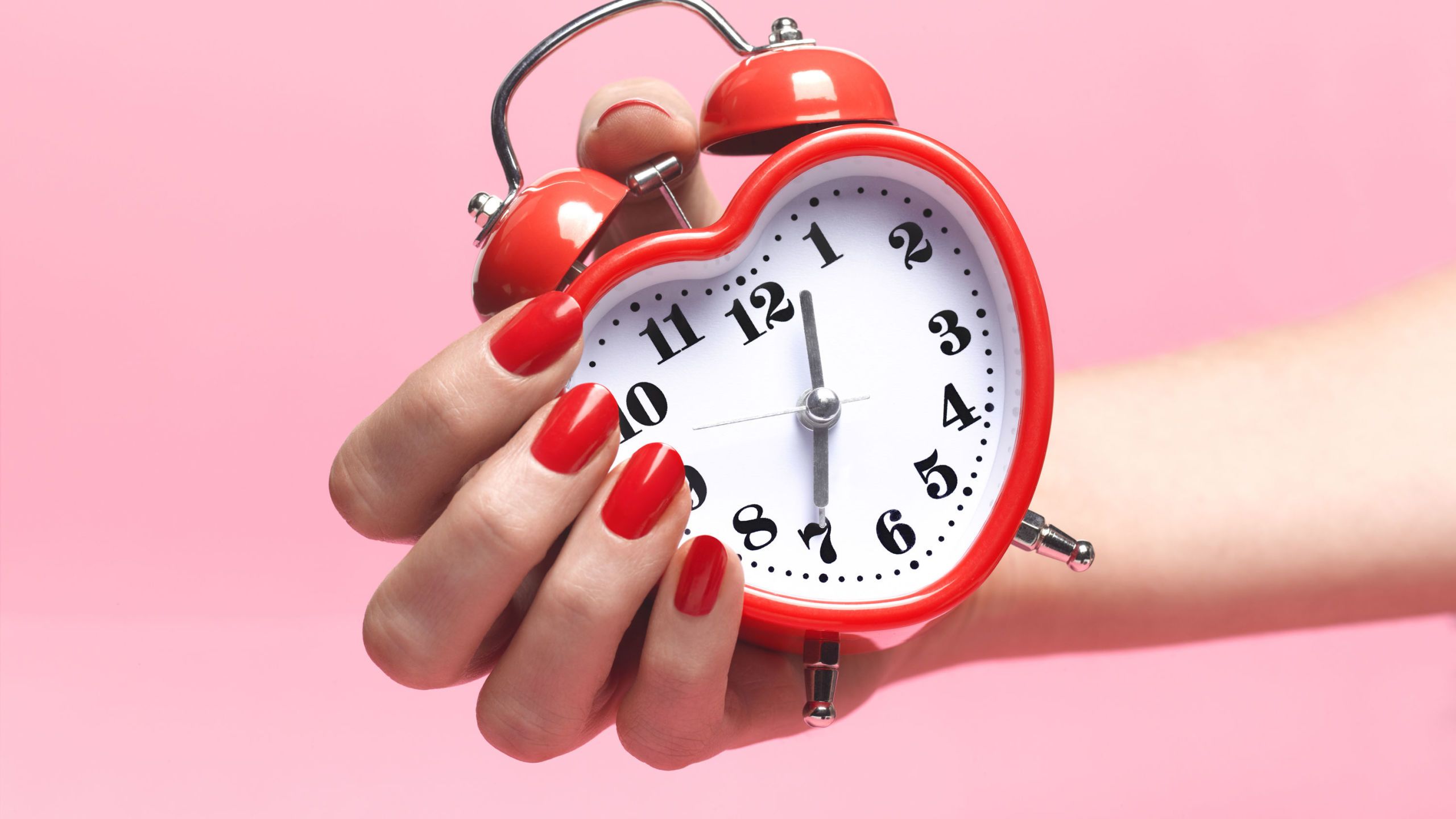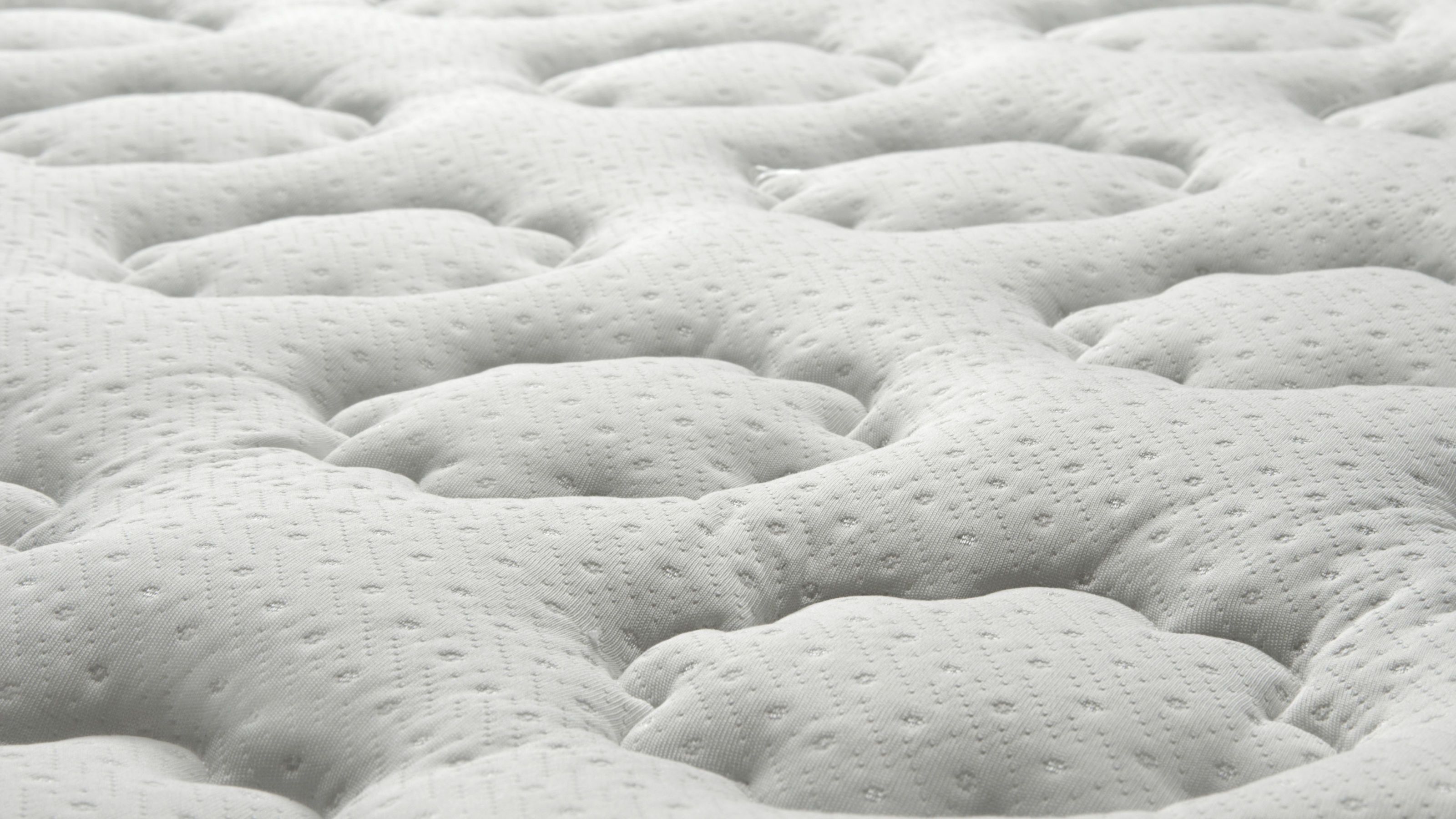5 Expert-Approved Ways to Fall Asleep Faster
And sleep deeper, while you're at it.


It's no secret that this new age of phones-as-extra-appendages, millennial ambition (read: the 9 a.m. to 9 p.m. hustle), and the resulting anxiety from both is taking a toll on our sleep. Ariana Huffington has made "the sleep deprivation crisis" her cause for encouraging a Sleep Revolution, and many of us wouldn't be able to say we regularly enjoy a good night's sleep according to health standards.
A recent study in Sleep Health, a journal run by the National Sleep Foundation, defines a good night's sleep according to these terms: 1.) You take an hour or less to fall asleep 2.) You wake up no more than once per night 3.) When you do wake up in the middle of the night, you fall back asleep within 20 minutes. 4.) You're asleep for at least 85 percent of the time you spend in bed.
"What did people do before all this technology? They got more sleep."
Dr. Mark Muehlbach of the Clayton Sleep Institute attributes much of this sleep disruption to a "go, go, go" modern society which makes people feel like they have too much to do. "What did people do before all this technology? They got more sleep. Now I think we're sleeping less and we're more tired during the day, so we have to drink more caffeine and energy drinks."
On a more biological level, Dr. Michael Gelb of New York's Gelb Center—who specializes in sleep disorders related to a blocked airflow—blames the very common, yet rarely-discussed, issue of having a narrow airway (what causes thunderous snoring, in other words).
Below, both make recommendations on how to re-program your sleep environment so that you can hit those "restful sleep goals" and wake up more refreshed in the morning.
1. Set Your Environment

As with coaxing yourself to sleep on a noisy airplane, a restful night involves cutting out the factors that keep us awake. According to Muehlbach, those include blue light before bedtime (whether from a flashing television or a phone/tablet screen), natural light in the bedroom, and external noise. (Editor's Note: I've tried everything from noise machines to sleep masks to pre-sleep meditation and highly recommend them all for better sleep.) Both experts also recommend downloading apps like Night Shift that reduce levels of blue light emitted from the phone as it gets later in the day.
Other red flags include the temperature: "Having the room temperature somewhere between 65 and 68 is better than in the 70s because our body does tend to sleep better when it's cooler," says Muehlbach. Besides a cool room, Gelb suggests having a humidifier for better air quality, good sheets, and a wedge pillow that props your head at a 45-degree angle.
Get exclusive access to fashion and beauty trends, hot-off-the-press celebrity news, and more.
2. Keep the Nasal Passage Clear
"When a lot of people fall asleep they actually get even less oxygen than when they're awake and as a result, have more disturbed sleep," says Gelb. Having treated many clients with blocked airways (which are "epi-genetic" traits that have become more and more common due to environmental factors like pesticides, pollutants, and food preservatives), he says the best way to maintain an open airflow is to invest in a Mute.
The new sleep device is an over-the-counter remedy designed to be inserted in both nostrils. This forces the nasal passage open from the inside, instead of sleep aids like the Breathe Right strip that work externally. The best part? It's re-usable so you can use it every night without having to replace it.
3. Maintain a Regular Sleep Schedule

One way for someone to shift their sleep schedule if they want to get to bed earlier and wake up earlier (the dream!) is to maintain a steady sleep schedule (yes, even during weekends when the party bug bites or you feel like sleeping in).
Muehlbach recommends regular exercise to fall asleep faster, and if you want to reset your body clock, strategically take melatonin a few hours before you want to nod off until you've established a regular pattern. Gelb agrees, saying that melatonin should only be used for dealing with issues like jet lag and circadian rhythm disorder, but not for general insomnia.
4. Quiet Restless Thoughts
Racing thoughts before bed are another common sleep deterrant that occurs when the mind is over-active. Gelb notes that some people may have developed this anxiety due to hypoxie, or a lack of oxygen. Chronic insomnia due to breathing issues can cause people to fear the sensation of choking while sleeping.
"Get out of bed, do something really relaxing, and then get back into bed. You don't want to spend a lot of time awake in bed."
Beyond investing in airway-opening devices like the Mute, Muehlbach recommends giving yourself time to wind down before bed without worrying about email alerts and the next day's agenda. Meditating and deep breathing exercises help too, he says.
As for those middle-of-the-night insomnia episodes? The advice might seem counter-intuitive: "Get out of bed, do something really relaxing, and then get back into bed. You don't want to spend a lot of time awake in bed because your body gets used to thinking the bed is there for lying awake," says Muehlbach.
5. Find the Goldilocks Mattress

Much ado is made about the quality of a mattress in getting better sleep, and both Muehlbach and Gelb recommend beds like the Sleep Number where each person can control their angle of incline for improved airflow and back support. It's all about personalization, in other words. As Muehlbach says, "the best mattresses are the ones you feel the most comfortable on."
This editor took a test-drive of America's most popular mattress to experience the way much of America sleeps (and whether or not it would improve my sleep quality). Having transitioned from a super firm Ikea mattress, a few weeks on the Casper felt like a noticeable improvement. I can't say that I felt like I was sleeping on a cloud (and I do prefer a softer bed), but experts suggest that a medium-firm to firm mattress provides more support for your lower back.
The actual game-changer, though, was the bed frame. Before the upgrade, my squeaky metal bed frame from Wal-Mart woke me up whenever I shifted my weight. Switching to a bed frame with shorter legs and a solid wooden foundation beneath the mattress made all of the difference since it's relatively noiseless and helps to distribute my weight evenly.
Follow Marie Claire on Facebook for the latest celeb news, beauty tips, fascinating reads, livestream video, and more.
